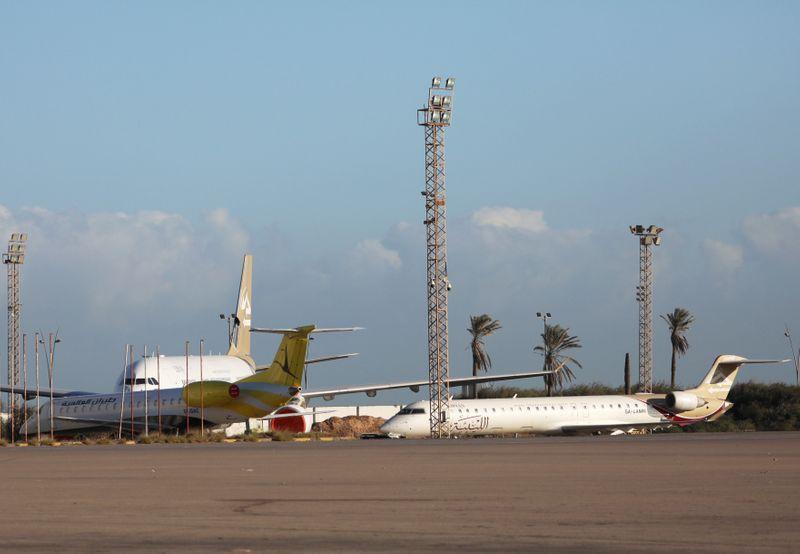
The head of the U.N. on Jan. 4 urged an "immediate ceasefire" in war-weary Libya where the internationally recognized Government of National Accord (GNA) fights forces affiliated with Gen. Khalifa Haftar.
"The Secretary-General renews his call for an immediate ceasefire in Libya and a return to political dialogue by all parties. Any foreign support to the warring parties will only deepen the ongoing conflict and further complicate efforts to reach a peaceful and comprehensive political solution," Farhan Haq, the Deputy Spokesman for Antonio Guterres said in a written statement.
Emphasizing the continued violations of the UN Security Council (UNSC) arms embargo imposed in 2011 would make matters worse, the statement said "strict adherence to the embargo is essential for creating an environment favorable to a cessation of hostilities.
Flights suspended in Tripoli as violence intensifies
Flights were suspended at the only functioning airport in Libya's capital Tripoli on Jan. 3 because of rocket fire and shelling.
Gen. Khalifa Haftar's forces said they had carried out airstrikes in several places on Jan. 3, including south of the city of Sirte and in Tripoli. Sirte lies in the center of Libya's coastline, on the dividing line between the warring factions.
An increase in airstrikes and shelling in and around Tripoli has caused the deaths of at least 11 civilians since early December and shut down health facilities and schools, the U.N. mission in Libya said.
Haftar's Tripoli offensive quickly stalled in the outskirts of the city but led to increased international involvement in the conflict.
Russian military contractors have also been deployed with Haftar's Libyan National Army for several months, diplomats and analysts said.
Mitiga airport has been repeatedly closed and reopened in recent years because of risks from shelling and airstrikes, reopening most recently on Dec. 12 after a closure of nearly 3-1/2 months.
It closed early on Jan. 3 because of rocket fire nearby, reopened briefly and then shut again because of shelling, airport and airline officials said.
Since 2015, war-torn Libya has been divided between two governments, one in the east and the other in the west, the Government of National Accord (GNA) of Prime Minister Fayez al-Sarraj, based in Tripoli and supported by the United Nations, as well as Italy, Turkey and Qatar.
In April, Haftar’s east-based army, which is backed by France, Russia and key Arab countries, including Egypt, the United Arab Emirates and Saudi Arabia, launched its push on the capital.
After nearly eight months of fighting, Haftar’s forces have not taken Tripoli but have been held off on the city’s southern edges, instead laying siege on the Libyan capital. The stalemated fighting has so far left more than 1,000 people dead, mostly combatants. Tens of thousands of civilians have been displaced.
Haftar’s supporters say they have restored security and civil order in the eastern part of the country and insist the LNA is not seeking to rule the country, but to rebuild the state and create conditions for elected government.